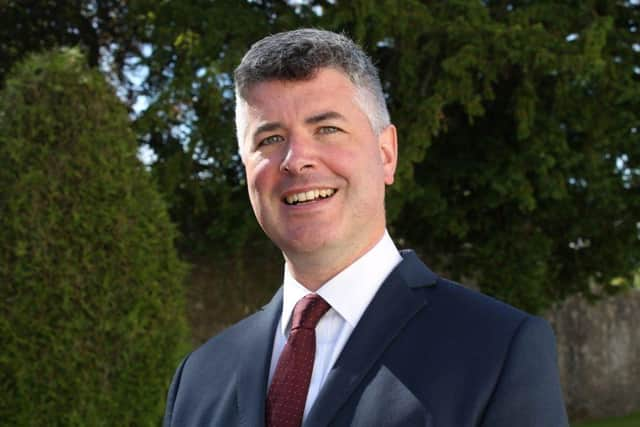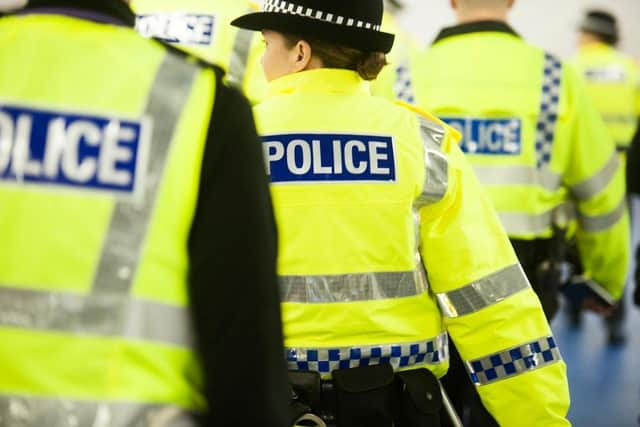Morale among Police Scotland rank and file at 'rock bottom' amid soaring mental health absences
and live on Freeview channel 276
Police officers and staff missed 76,848 working days in 2021/22 as a result of “psychological disorders”, according to official statistics published in the 1919 magazine, Scotland’s justice and social affairs publication, on Tuesday.
It is a 22% jump from 62,783 in a five-year period, bringing the total number of mental health absences since 2017/18 to more than 350,000.
Advertisement
Hide AdAdvertisement
Hide AdOfficers are beginning to “fail” and struggle with their tasks as a result of “critical” stress levels, Scottish Police Federation chairman David Hamilton said, whose organisation represents all officers, and special constables, up to the rank of chief inspector.


One anonymous officer said morale within the force was at “rock bottom” while another added: “I find myself taking longer and longer to recover from incidents and my mood is often up and down.”
Mr Hamilton said: “The problem is that the service’s response to wellbeing has been very reactive when what we need to do is stop problems happening in the first place.
“We are constantly putting plasters on to stop the bleeding when we need to prevent the bleeding in the first place.
Advertisement
Hide AdAdvertisement
Hide Ad“The challenge highlighted in our evidence and in the surveys that we and Police Scotland have carried out is that people are burning out because they are so busy with work – not least dealing with mental health calls – that they are not getting the chance to get away from it.”


Officers are repeatedly called to deal with mental health issues as the NHS struggles to cope with the demand. They frequently have to handle delicate and often distressing domestic and sexual abuse cases and are being assaulted on a near-daily basis.
In evidence to the Scottish Parliament’s Criminal Justice Committee last month, Mr Hamilton told MSPs that officers were overwhelmed by the number of crisis calls they received from the public as a “last resort” and urged better support to help emergency services cope with the high demand.
Now he said the stress felt by officers is “constant” as they struggle to cope with the demands of their job.
Advertisement
Hide AdAdvertisement
Hide AdHe added: “They are getting to the critical stress level at which people burn out. That was all the data tells us: police officers are burning hot just now and beginning to fail.
“Whatever we do in response, we need to stop that sort of thing happening in the first place before it needs to be fixed.”
Deputy Chief Constable Fiona Taylor told 1919 magazine: “Policing is a relentless but rewarding vocation which places significant demand on physical, emotional and mental wellbeing.
“Our people are highly motivated by public service and they work tirelessly to improve the lives of people and communities in Scotland every day, against backdrop of increasing demand.
Advertisement
Hide AdAdvertisement
Hide Ad“The safety and wellbeing of officers and staff – and their families – is a priority for Police Scotland and we have a range of mechanisms to support our people across their psychological, physical, financial and social wellbeing.”